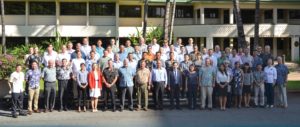
Forty-eight security practitioners from Southeast Asia nations, key regional allies and the United States took part in the Aug. 15 to 19 “Maritime Security Logistics Workshop” at the Daniel K. Inouye Asia-Pacific Center for Security Studies. The event enabled participants to discuss opportunities to cooperate in strengthening regional logistics capabilities and capacity.
The U.S. Department of Defense, Southeast Asian maritime nations, and key regional allies participated in the first in a new series of multilateral engagements Aug. 15 to 19 at the Daniel K. Inouye Asia-Pacific Center for Security Studies.
The “Maritime Security Logistics Workshop,” enabled 48 security practitioners from the participating nations to discuss opportunities to cooperate in strengthening regional logistics capabilities and capacity.
“Nations are building a common understanding of maritime threats and recognize the need to work together to counter them effectively,” said DKI APCSS workshop lead U.S. Navy Cmdr. Jonathan G. Odom. He added, “This week’s event enabled maritime security professionals to explore how they can gain efficiencies logistically and share their respective expertise, equipment and technology so that it is `one team, one fight’ against common maritime threats and challenges.”
The workshop was comprised of a number of lectures and panel presentations by subject matter experts across a broad range of disciplines. Key topical discussions included the “Role of International Law in Maritime Security Logistics,” “Operational Logistics Readiness, Institutional Planning and Operational Sustainment,” and “Interoperable and Cooperative Logistics.”
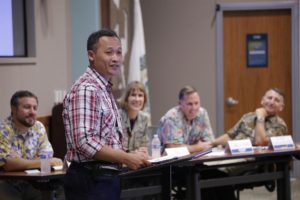
Teguh Kadyat Yudharto, with the Indonesia Navy’s Logistics Office, briefs his country team’s discussion results to a panel of senior security experts during the “Maritime Security Logistics Workshop.”
Additionally, workshop participants worked together in a table top exercise that posed realistic logistics challenges and required coordinated, multinational responses. The scenarios focused on a series of maritime security scenarios, which included a large-scale natural disaster impacting Southeast Asian seaports, a spike in piracy and armed robbery at sea in nearby sea routes, and several commercial vessels running aground on islands in the region.
Nguyen Thi Lan Anh, with Vietnam’s Ministry of Foreign Affairs, said the workshop’s scenarios had a strong connection to world logistics issues and raised her awareness on the value of preparation, particularly in lowering operational costs and increasing effectiveness.
She added that she learned logistics is an important aspect of maritime security cooperation “When (vessels) conduct a mission on the sea, they meet at some logistics center for fuel, for maintenance, for supplies for the crews…every country can provide that. Every country can cooperate in doing that.”
According to Odom, the workshop led to a common understanding of how logistics capabilities, or deficiencies thereof, can impact efforts to protect national and regional maritime security interests. The participants also explored gaps in capabilities and how to collaboratively fill those gaps.
“Of particular note,” said Odom, “workshop participants identified a number of practical ways to maritime security cooperative logistics, which included negotiating new logistics agreements & informal arrangements, establishing bilateral exchanges of logistics personnel, and integrating cooperative logistics objectives into multilateral exercises.”
Workshop participants included policy advisors, operational planners and logisticians originating from the governments of Indonesia, Malaysia, the Philippines, Thailand and Vietnam. Observers from Japan and Australia also attended this week’s workshop.
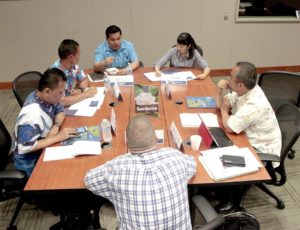
Participants share perspectives on issues associated with maritime security logistics cooperation during an Aug. 15 to 19 workshop at the Daniel K. Inouye Asia-Pacific Center for Security Studies. The workshop featured breakout sessions comprised of country-specific and cross-functional teams.
DKI APCSS is a Department of Defense institute that addresses regional and global security issues. Military and civilian representatives from the United States and Asia-Pacific nations participate in a comprehensive program of executive education, professional exchanges and outreach events, both in Hawaii and throughout the Asia-Pacific region.
The Center supports the U.S. Pacific Command by developing and sustaining relationships among security practitioners and national security establishments throughout the region. DKI APCSS’ mission is to build capacities and communities of interest by educating, connecting and empowering security practitioners to advance Asia-Pacific security. It is one of the Department of Defense’s five regional security studies centers.
Since opening in 1995, more than 10,300 alumni representing over 122 countries and territories have attended DKI APCSS courses and workshops.
-END-


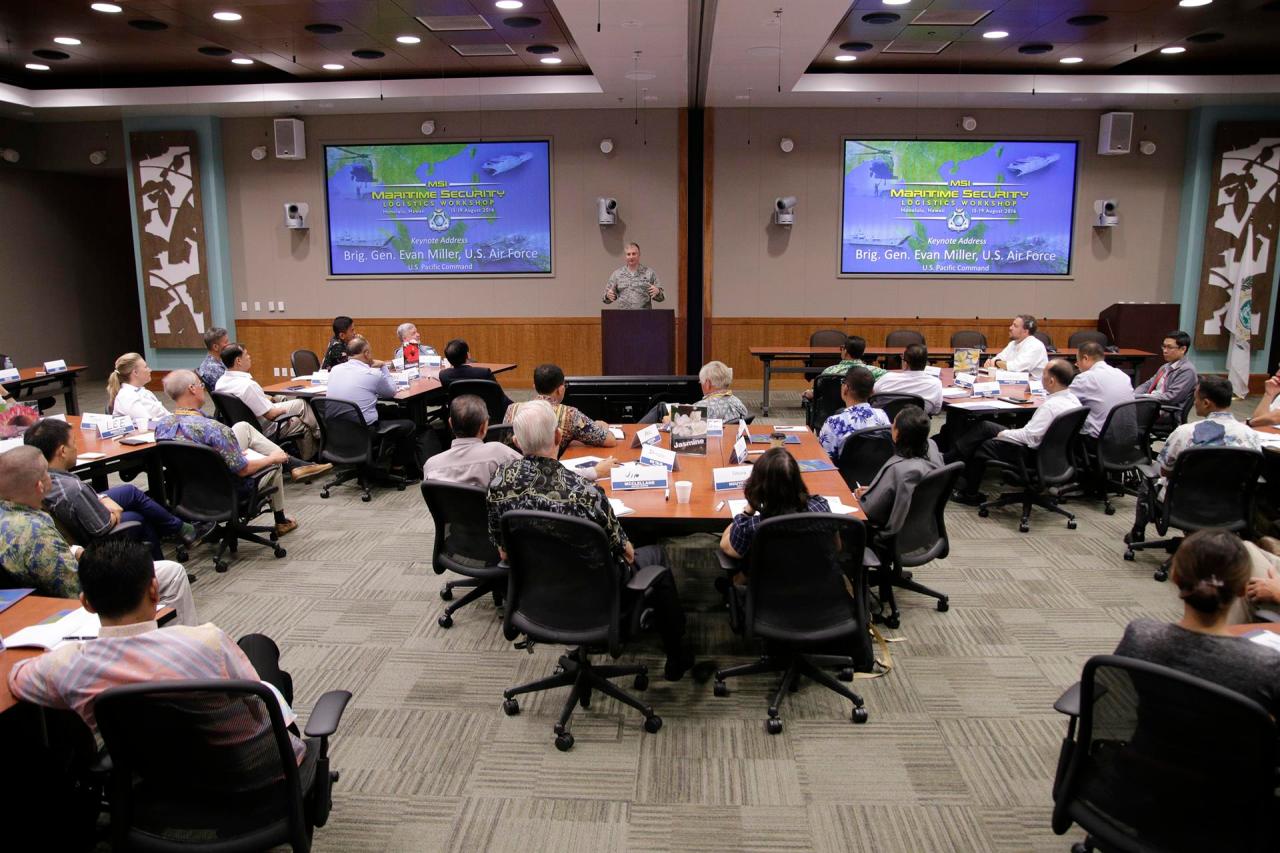
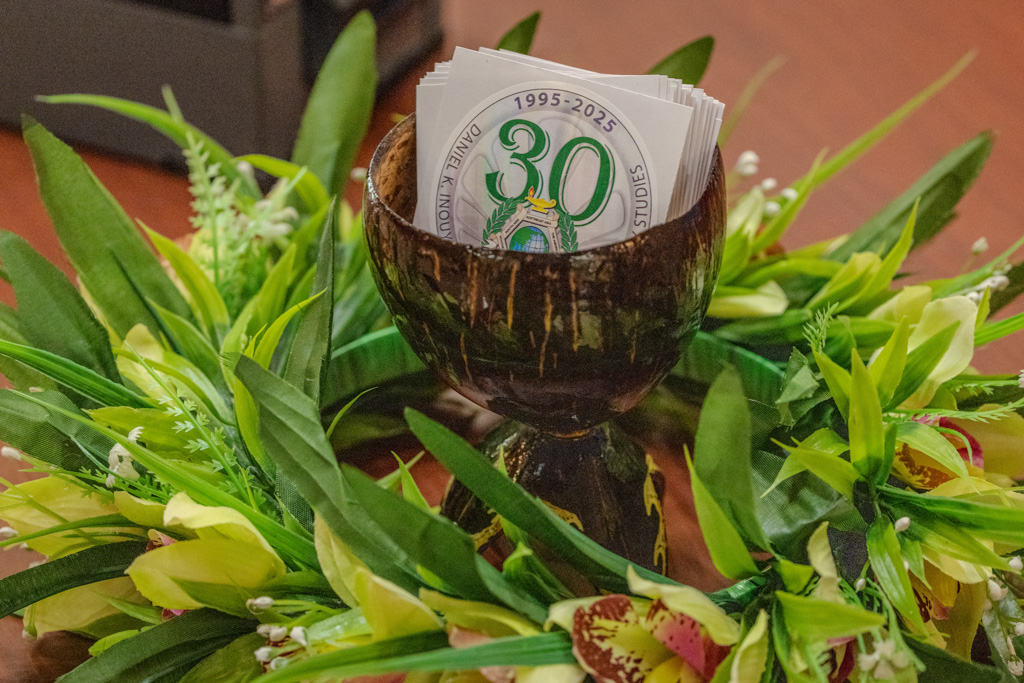
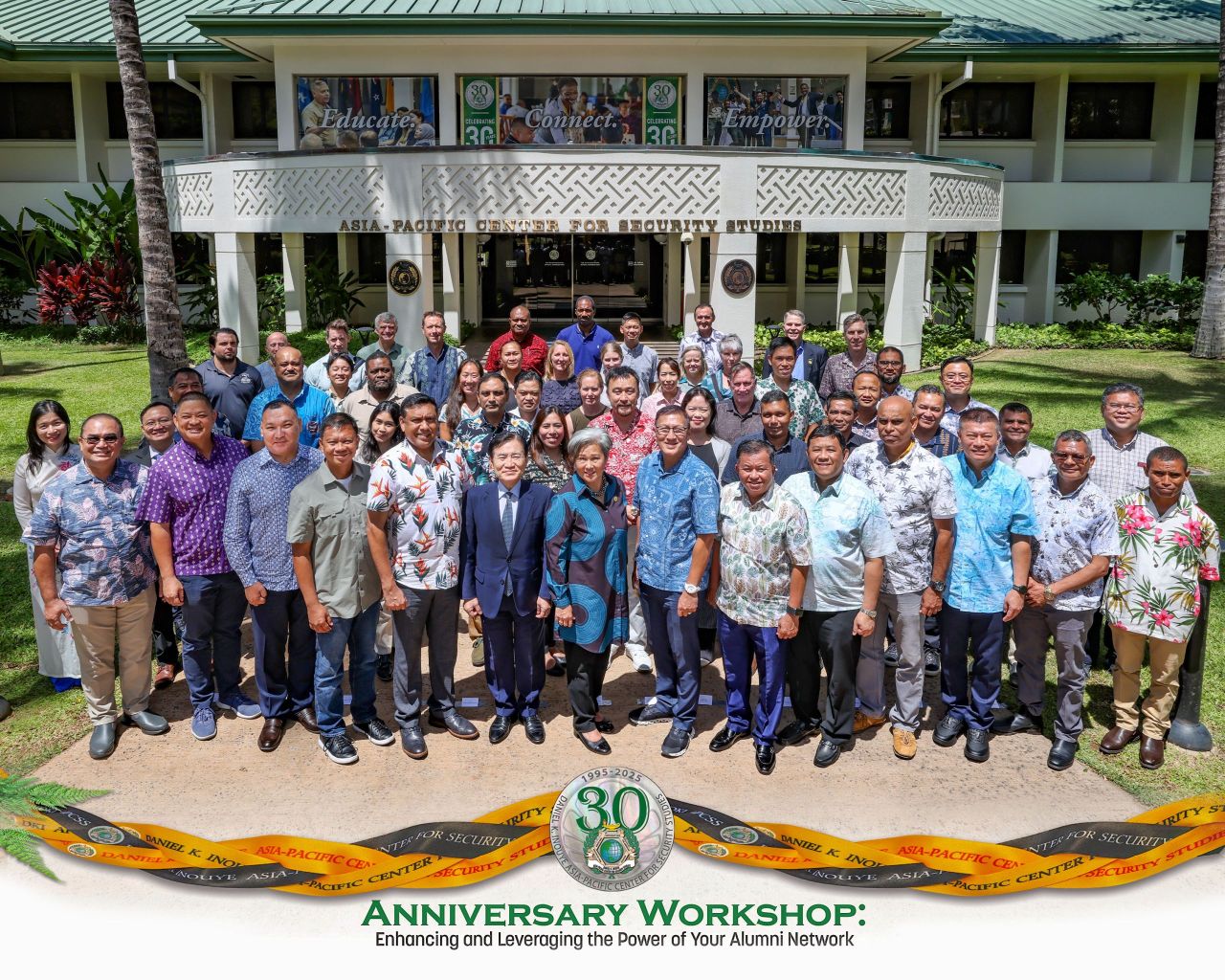
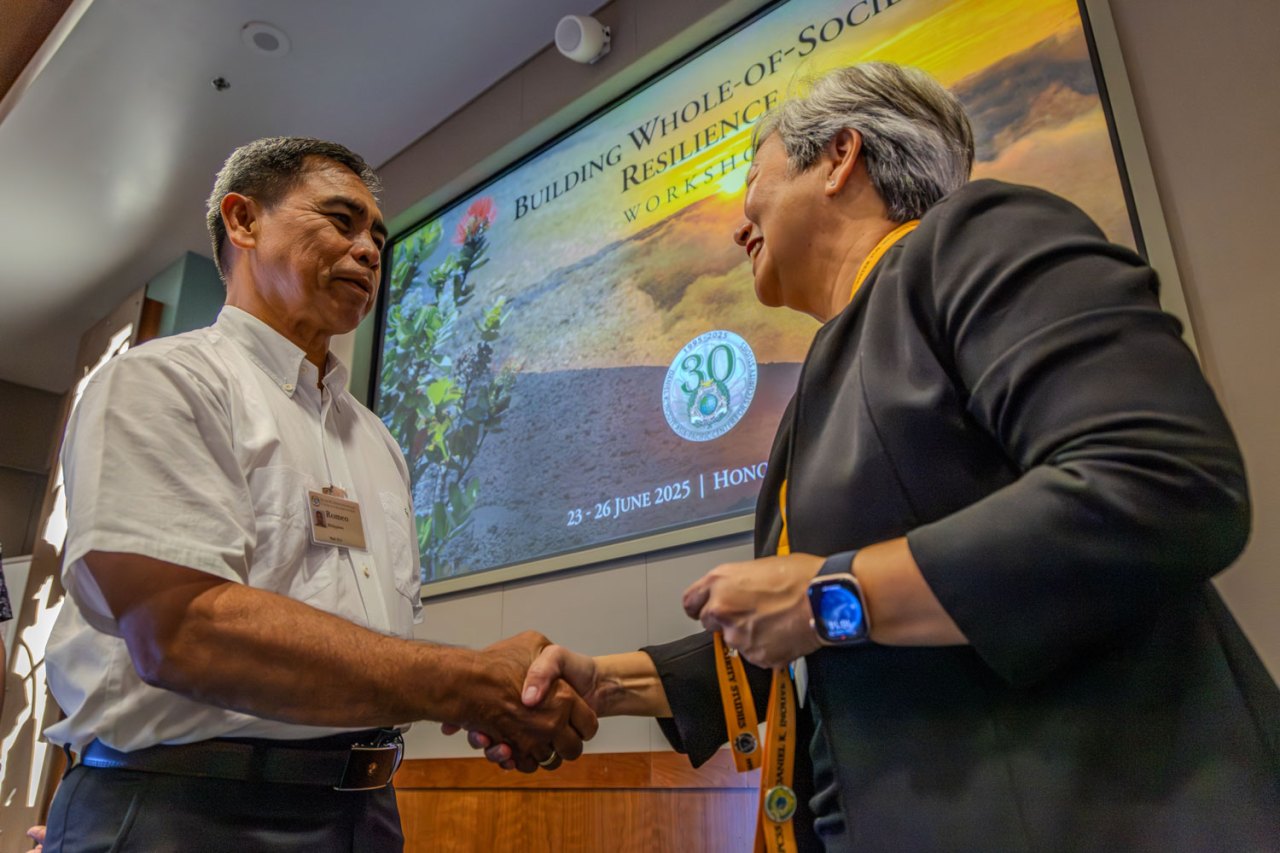




Thats a good program and topics cause maritime security issue is always come with new problem.Indonesia as the big maritime country than the land should aware to the maritime security such as hijacking from Abu Sayaf in Filipina.Some hijacker at Java sea as the complaining some peoples who try find fish at the sea .